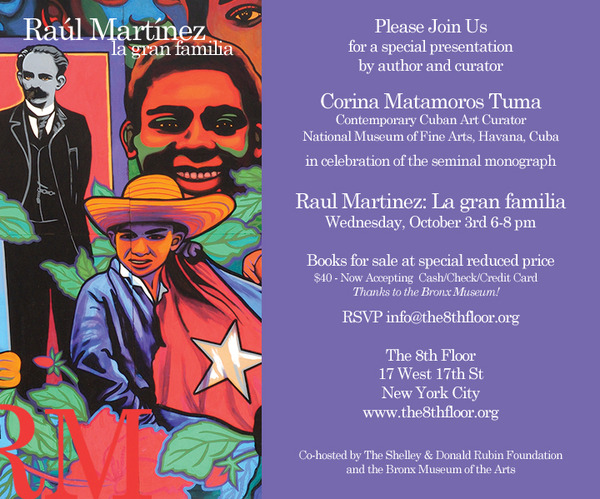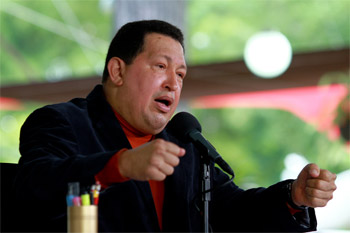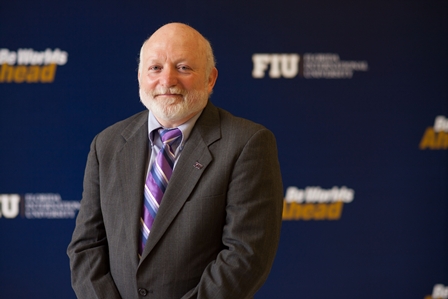Thursday, October 11, 2012
Jorge Domínguez: "Can Cuba's leaders govern?"
Miami, Florida, August 2-4, 2012.
As I tweeted at the time, the take away of his excellent talk for me was this:
While Fidel Castro may have had many cockeyed economic ideas that led to periodic unrealistic all-or-nothing mobilizations that often ended in disaster, when that "Comandante-en-jefe" gave an order, it was followed.
Under Raúl, Domínguez argued, economic policies are much more pragmatic, realistic, and potentially beneficial, but due to what Domínguez called a pernicious "bureaucratic insurgency" there is an epidemic of foot dragging with Raúl's economic "updating" policies.
That is, under Raúl Cuba's "bureaucratocracy" fails or refuses to implement his policies, thus significantly weakening the state
Professor Jorge Dominguez delivers the Ernesto Betancourt Keynote Address from Asce Web Presence on Vimeo.
Friday, October 5, 2012
@OLPL on confirms detention of Yoani Sanchez
Update: Sánchez narrates some of the key events during her 30-hour under arrest at Huffington Post and on her blog Generation Y.
Thursday, October 4, 2012
Venezuela, Oct. 7: The possible, the probable, and the preferable
HAVANA TIMES — It's been 14 years since Hugo Chavez burst into the Venezuelan presidency, and with him his project known as the "Bolivarian Revolution."
Weariness with the corruption of the Fourth Republic and the exclusion of the poor (who were suffering the impact of neoliberal policies) led to the establishment of an electoral front that put forward the lieutenant colonel, who won by a large margin over the other candidates, especially the representatives of the traditional parties.
From that moment on, the new government faced stiff resistance from those parties, as well as from an alliance of the media and the urban middle and upper classes, which in 2002 and 2003 turned to strategies of destabilization, including a failed coup. The new government managed to weather the storm, reconstructing a framework of domestic and international legitimacy in successive elections from 2004 to 2006.
The process, in an attempt to overcome the deficits of the Fourth Republic, expanded citizens' participation in Venezuela and put the social agenda in the center of the debate. Public policies grew, generating processes for including the marginalized – thanks to revenues generated by oil.
These elements — certainly positive — joined the redefinition of the regulatory framework (with a new constitution and the passage of new laws) with the recuperation of the role of the state as an active agent in national life, as it delineated the main features of the project that was (self) identified as Bolivarian.
But the democratizing effect of the new government was gradually tinged, starting in 2006, by increasing personal ambitions and political bureaucratization with the emergence of a hyper-presidential regime, a dominant political organization (the United Socialist Party of Venezuela, or PSUV), and the development of participatory mechanisms (community councils) that operated as instruments of political control and mobilization.
Tonight in Miami, USA: U.S. Cuba Policy and the Cuban-American
Wednesday, October 3, 2012
La Gran Familia: TONIGHT Corina Matamoros on Raúl Martínez
 |  |  |

Please Join Us
for a special presentation by author and curator
Corina Matamoros Tuma
Contemporary Cuban Art Curator
National Museum of Fine Arts, Havana, Cuba
in celebration of the seminal monograph
Raul Martinez: La gran familia
Wednesday, October 3rd 6-8 pm
Lecture 6:30 Reception to follow
Books for sale at special reduced price $40
All payments accepted, administered by the Bronx Museum
RSVP info@the8thfloor.org
The 8th Floor
17 West 17th St
New York City
www.the8thfloor.org
Co-hosted by The Shelley & Donald Rubin Foundation and the Bronx Museum of the Arts
Thursday, September 20, 2012
Dolor & Horror: State Homophobia in Cuba
Mariela Castro, the daughter of Cuba's current president (and the niece of its former one), made a trip to the U.S. in May, which included a presentation at the LASA conference in San Francisco followed by a supposedly public talk at the New York Public Library (the main branch at 42nd Street).
Many Cubans in the NY Metro area attempted to get tickets to her talk to engage her in a real debate but were told inexplicably that the event had already reached capacity.
Some of them sent a letter to the NYPL demanding an explanation and a public hearing.
Monday, September 17, 2012
Cuba, Miami y la homofobia
Hoy leí en PD un resumen del panel sobre LGBT del sábado pasado en el NYPL de Harlem (vea mi foto de los ponentes arriba). Acerca de lo que Alexis Romay escribe allí sobre mi pregunta acerca de la homofobia en Miami hacia el final del evento, le digo: o me entendió mal o no me quisó entender. A eso regreso mas abajo.
Wednesday, September 12, 2012
A friend weighs in on Lybia
From: William Pelletier
Sept. 12, 2012
This morning, news organizations reported the death of J. Christopher Stevens, U.S. ambassador to Libya, and three other Americans who worked for the State Department, near the U.S. consulate in Benghazi. The four were killed in a riot related to ongoing violence in Egypt and Libya by crowds purportedly enraged by an American-made video that protrayed the prophet Muhammad as being homosexual, a pedophile and a philanderer, all of which are considered blasphemous in Islam.
The video was made by Sam Bacile, an Israeli-American who lives in California and has reportedly gone into hiding. It was publicized by World Dove Outreach Center pastor Terry Jones, the same man who held a trial for the Koran in his church and subsequently burned it in 2010.To Mr. Bacile: Why are you hiding? Did you honestly think that creating such a movie would produce any result other than pandemonium? Israel is a beautiful, vibrant country that lives in existential danger, and THIS is how you contribute to efforts to keep it safe? Your lack of judgment is matched only by your absence of courage in letting others stand accountable for the chaos you created. Theo van Gogh at least had the courage of his convictions, for which he died. On second thought, stay wherever you are.To Mr. Jones: I omit the honorific "Pastor," because a pastor is one who tends a flock. You clearly have no one's interests at heart but your own, and as a former Gainesville, Fla. resident, it pains me to see that town's name tarnished because of its association with the likes of you. Justice would be seeing you and all zealots cast into a pit together where the only havoc you could wreak would be on each other, but that's not for me to decide. However, I say that your teachings in no way resemble the answer to the question "What would Jesus do?"To the Cairo and Benghazi rioters: Whether you were willing participants or unwitting dupes of manipulating masters, you have been party to murder and mayhem. Your action is that of a mad dog, a person who has nothing to lose, and eventually you will force someone to treat you that way. If your goal was to move us one step closer to an end-of-days clash of civilizations, you have succeeded.To those who demand an apology from the U.S. government for the film: Go suck an egg (and I restrain myself in my choice of language). This is what freedom looks like, this is what it means to have choices. Your inability or unwillingness to restrain the infantile, anarchic impulses of the people is why America's way has always been the way of the future. Your way is built on a foundation of sand and the result shall be a surprise to no one but you.To campaign operatives of any party who would even think of political gain from these events: God's own shame on you.To the wives, children, family and friends of Ambassador Stevens, Foreign Service Officer Sean Smith and our other fallen comrades: You have my family's prayers and condolences. Please pay no mind to the above-listed cowards, charlatans, nihilists, mobsters and calculators who posture grandly with other people's gold. You are the Americans, along with the families of our military, State Department and other overseas agencies, with real skin in the game, and your word carries weight because of your sacrifice. Please take comfort in the fact that while others bloviated, ranted, conspired and threw tantrums, your men walked the walk and died in the noblest of pursuits.Finally, to the U.S. Marines who guard our embassies around the world: Days like this are what you have trained for. Steady. Semper Fidelis.//
Sunday, September 9, 2012
LGBT Lives in Contemporary Cuba
Thursday, September 6, 2012
Jorge Duany Appointed as New CRI Director
Jorge Duany has joined FIU as the director for the Cuban Research Institute.
He brings with him a passion for shaping the conversation about Cuba and her people. Born in Cuba but raised in Puerto Rico, Duany has long struggled with answering the question: Where are you from? He sometimes just answers, "I'm Cuba Rican." He became interested in the idea of migration, specifically in the Spanish-Caribbean migration, during his time in Puerto Rico and has published extensively on migration, ethnicity, race, nationalism, and transnationalism in the Caribbean and the United States.
"I would like CRI to focus more on the Cuban American community and the Cuban diaspora in the 21st century," Duany said. "I want to strengthen the CRI-faculty relationships, courses, fellowships and summer programs."
Along with his appointment at CRI, Duany also will serve as an anthropology professor in the Department of Global and Sociocultural Studies within the School of International and Public Affairs.
"Dr. Duany brings a unique perspective to our Cuban studies," said John Stack, executive director of the School of International and Public Affairs and associate dean of the College of Arts & Sciences. "His passion for Cuba and her people will help invigorate thoughtful conversations about the role Cubans play internationally and about the future of Cuba, itself."
Prior to joining FIU, Duany served as acting dean of the College of Social Sciences and professor of Anthropology at the University of Puerto Rico, Río Piedras. He currently belongs to the editorial boards of academic journals including CENTRO: Journal of the Center for Puerto Rican Studies, Cuban Studies, Latin American and Caribbean Ethnic Studies, and Latino Studies.
Duany received his Ph.D. in Latin American Studies, specializing in anthropology, from the University of California, Berkeley. He received an M.A. in Social Sciences from the University of Chicago and a B.A. in Psychology from Columbia University. He served as director of University of Puerto Rico's Department of Sociology and Anthropology and director of the journal Revista de Ciencias Sociales. He has had visiting teaching and research appointments at several United States' universities, including Harvard, Connecticut, Wisconsin, Florida, Michigan, Pennsylvania, and the City University of New York.







